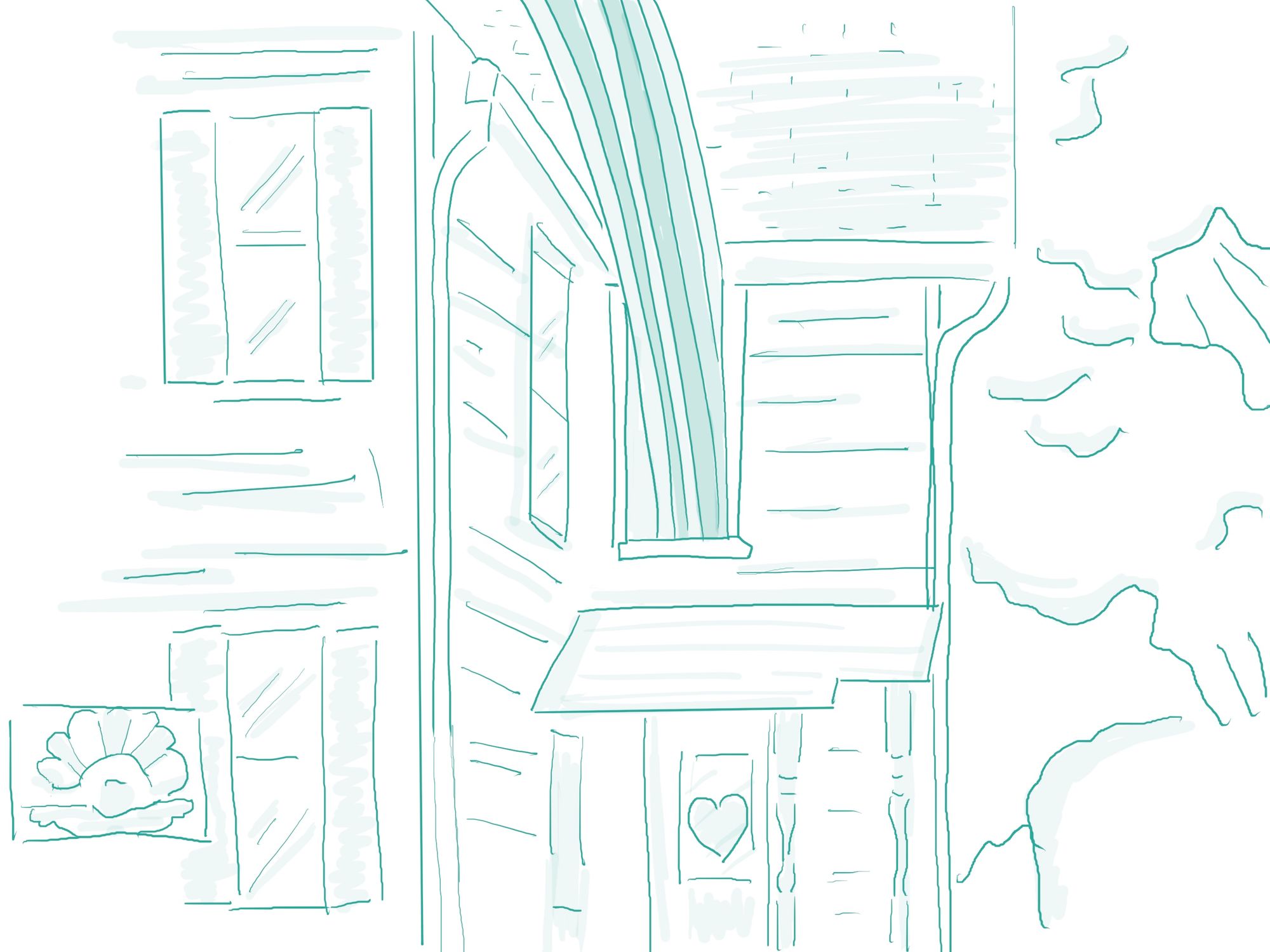Arsenal
Chapter 3: While living in an inner city coffeehouse, I came to know the lonely and the strange, fighting with the homeless and exorcizing the demon possessed.

It wasn't a cult, but that's exactly what cult members say. Most kids don't have the guts to charge at a grown man and cast out his demons, but it wasn't considered strange where I lived at The Sonshine Inn. I spent my years there, groomed into a young zealot — one who would do what few would in order to prove it.
Even Dr. Venkman knew a few taps on a piano wouldn't do much to scare off a few ghosts. "They hate this" is all he said "I like to torture 'em". He never said it would get rid of them. I'm not sure what I expected.
The rumble of live music shook the thin walls every Friday and Saturday night. The diverse crowd constantly coming and going had one thing in common. They were lonely. All the activity occasionally resulted in a visit from the police. On Arsenal, only a couple houses blocked us from the noise of the industrial motor repair shop. A handful of run down homes sat between the train tracks on one side of the block and a busy Washington Street on the other. Gravel parking lots and unkept yards surrounded us. It was exciting to move into the coffeehouse when I was five years old. Ten years later, the place had taken its toll on us, and we were glad to finally get out.
The community that formed the coffeehouse was a bunch of hippies who wanted to create a place to persuade people to switch teams. To switch from worshipping Satan to becoming Jesus people, or trading alcoholism for coffee – lots of it. Many were the type of people you would see as street preachers, but somehow they created something to draw people in on a residential street in the most brutal zip code in Indianapolis.
My parents were involved since the beginning. We didn't go on vacations or go out to eat. We spent our weekends running the coffeehouse. The kids took over the front room if our parents didn't kick us out for a prayer meeting where they needed a closed door.
When I was six years old, I sat to take a breath after playing with the other kids. A family found their way to a corner of the room, sitting down to collect themselves. They arrived with two little kids and a couple of large trash bags stuffed with clothes, toys, and toilet paper showing through the white plastic. I asked them, "What are you carrying in those bags?"
"This is all our stuff," the mother chirped as she lifted her small child onto her lap.
"Why don't you put it in your house?" I asked her.
"We don't have a house," she said quite matter-of-factly, "we live on the streets."
Another time, I was sitting in the front room early in the night, and a man walked in and immediately introduced himself. He was a clean-cut, towheaded guy with a striped shirt. I was the first one he saw when he strolled in the front door.
"Hi, are you guys open yet?" He said.
"Yeah, we open at 7:30," I responded quickly, not shy of strangers.
"My name is Dennis." he grinned as he reached to shake my hand. "I just got out of prison."
I barely paused. "I'm Daniel," I told him, not thinking to ask him why he was in the big house. Was it drugs? Was it stealing cars?
"I got a job driving a limo now,..."
Definitely stealing cars. Had to be. He was too nice of a guy, so I wouldn't hold it against him.
"...well I'm just glad to be here."
Dennis became a regular. He ended up dating another regular named Sally or Sandy or Linda. Kai was her daughter, and she played with us when she was around. But don't call her Kyle. She didn't like that. I wonder if she liked having a car thief as a new dad.
Eventually, they stopped coming around, and we had to fill their spot with new friends, as always.
The coffeehouse was a refuge for the homeless, drug addicts, and Christians who enjoyed cheap coffee and local music. For some, it was their social life, and others had nowhere else to g0. Looking back, I remember a bunch of lonely people escaping the cold weather and a colder world.
Rodents found an escape from the cold too. The mice were as plentiful as the holes in the plaster walls. They were starting to treat us like we were the intruders, there were so many. They barely tried to hide from us anymore. The roach infestation swelled based on the weather and probably how we kept the house. Human intruders were less common but common enough, although there wasn't much to take, they'd steal what they could, usually on a Sunday morning when we were out for church.

The ramshackle house was set up for live events with an open room, a makeshift stage barely enough for a set of drums, and big telephone cable spools converted to tables. My job each Friday was to vacuum the "Big Room" as we converted the house in a run-down neighborhood from our home to a public house where coffee was 25 cents and admission was free.
The large hand-carved Jesus fish hanging from the wall gave away the purpose of the coffeehouse and its free admission. The mismatched carpet and crumbling plaster walls exposed the budget – and us, to the weather. It was run completely by volunteers, but the biggest volunteer task was living there. For us, it also meant we lived rent-free – the only thing between us and homelessness.
The rest of this chapter is for paying subscribers. Sign up here to read the rest.

